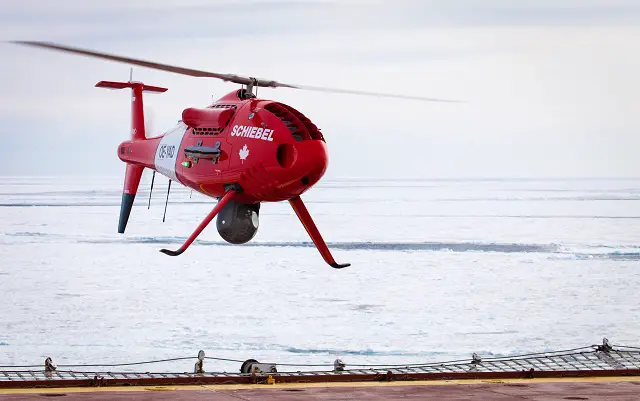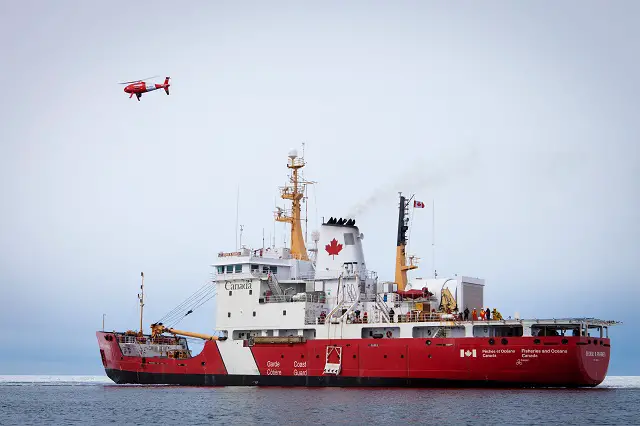Breaking news
Camcopter S-100 Successfully Demonstrates its Capability During Canadian Icebreaking Operations.
| 2016
 Schiebel picture
Schiebel picture |
|||
One goal
of the trials was the enhancement of situational awareness by transmitting
pictures directly and in real time to the ships bridge. This S-100 feature
is already well proven, i.e. in the Mediterranean for humanitarian operations,
and is easily adapted to support activities related to the conservation
and protection of the Canadian fishing grounds. In a press release issued by the Canadian Coast Guard at the time of the trials aboard the CCGS George R. Pearkes, the Canadian Minister of Fisheries, Oceans and the Canadian Coast Guard, Hunter Tootoo was quoted as saying “I am pleased that the Government of Canada is collaborating in this important initiative. The trial is an excellent opportunity to explore UAV technologies for the enhancement of Canadian Coast Guard services.” Likewise Kirsty Duncan, the Canadian Minister of Science, agreed that “Science and research play a central role in our Government’s plan to build a thriving economy, and they provide the evidence the Government needs to make sound policy decisions. By conducting leading-edge trials in real environments, we are better able to understand the impacts, benefits and potential applications of this new technology and ensure that the knowledge we gain is shared with our industry and academic partners.” |
|||



























